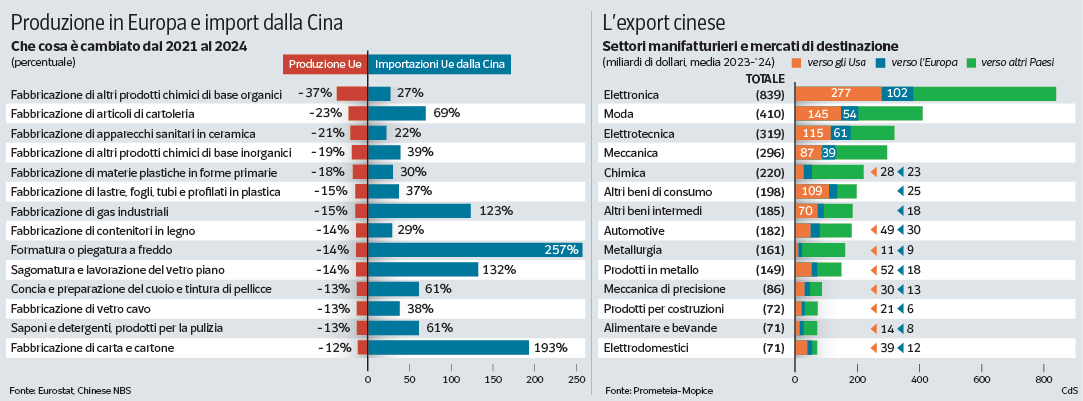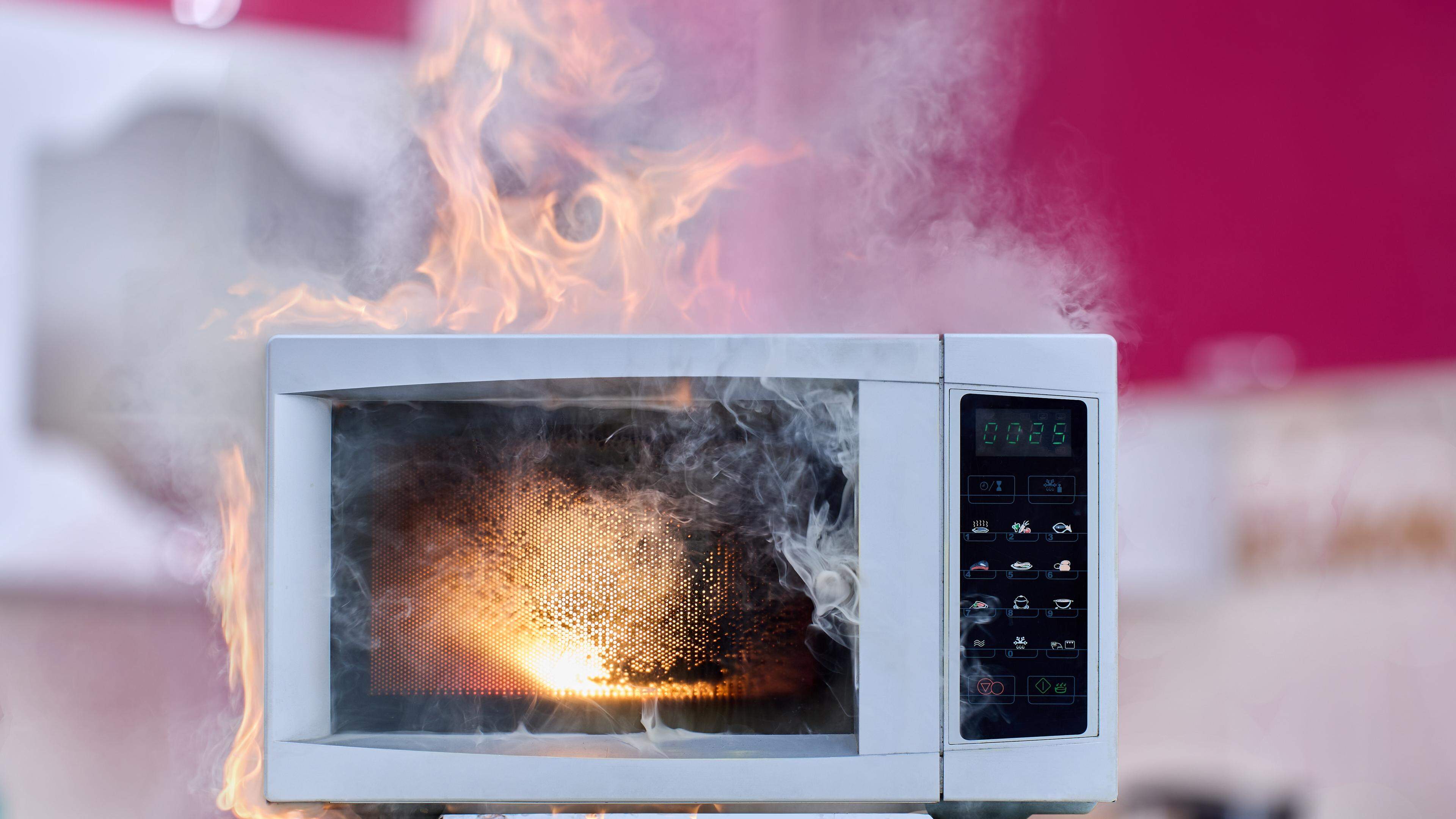The wall of American duties changes the trade for Italian companies: « risk invasion of Chinese goods »

Super duties towards Beijing. The doubts of businesses: counter-rifle or investing in competitiveness?
THE USA duties on China have increased in the last week on several occasions. For those who had lost account, Today they have reached 145%. As Italian companies are crushed between two fronts: on one side penalized by the US duties, on the other aware of the risk of invasion of low -cost Chinese goods. Steel, aluminum, basic chemistry, vehicles, refrigerators, washing machines, textiles, clothing. Even food. If the danger is recognized by everyone, less sharing is on the type of responses to be put in place. But let’s go in order.
Let’s take the appliances. Today 35% of the refrigerators sold in Europe come from Asia, 25% if we talk about household appliances in general. « From Covid onwards we witnessed an increase in the imports of products from Far East, often with very aggressive prices – Marco Imparato, director of Applia, the association of producers in the sector is pointing -. With the new US duties we fear that this dynamic can further accentuate « .
A sector that is talked about is chemistry. But here too the problem exists, and how. « The risk that comes from a reorientation of Chinese products to Europe caused by the US duties on Beijing is very high – warns the President of Federchimica Francesco Buzzella -. Also because the share of Chemistry import from China has already increased from 5 to 16% in the period 2021-2024 ». But what are the signs today? Any indicator show that the situation is getting worse? « In January the import from China was doubled »reports Buzzella.
Same fears in another sector in truth already tartinated by the decline in industrial production such as that of textiles-clothing. The president of Confindustria Moda Sergio Tamborini underlined it in recent days: The products that the Chinese can no longer sell in the USA will end up somewherewe also fear at our house. It is difficult to blame him, also because China until yesterday exported to the US products related to textile and fashionable for the not negligible value of $ 145 billion a year.
There is no shortage of concerns also for the mechanical sector already in the reconversion phase with the Green Deal. In this area they will no longer be able to take the road to the US Chinese goods for the value of 87 billion dollars every year. If we talk about Automotive and steelmateThen, it rains in the wet because Europe has long undergone Beijing’s competitionso much so that The duties on Chinese goods have been introduced For a while. The point is: will they now be sufficient protection? Let’s take the case of the automotive: if today the Chinese cars sold in Europe amount to about 5% of the total, even before the shock of the duties, the Alix Partners consultants estimated a growth at 12% in 2030 and 20% in 2035.
What to do? Raise and enlarge the duties towards China? The answer is not at all obvious. Within Ucimu, for example, the association of machine tool producers, the comparison is open on the effectiveness of possible interventions.
Last Tuesday at the meeting called by the government with the social partners, Confindustria presented its proposals to enhance the « commercial defense ». «The problem is that China was already managing an important productive surcharge. For some time he has been trying to strengthen the internal demand, which however still remains weak », reflects Alessandro Fontana, director of the Study Center. The industrialists are realistic. Even at the meeting with the government it came out that it would be better Avoid duties on intermediate assets (the individual components of a product) because entire supply chains would be put in difficulty.
There is a risk of hurting us aloneespecially when it comes to strategic technologies for the transition. At most the duties could be introduced or increased on some products intended for the final consumer. With the awareness that can also be easily circumvented. In Confindustria many agree that It would be more effective to tackle the root problem. That is, by increasing the competitiveness of our companies, starting from the cost of energy.









/s3/static.nrc.nl/images/gn4/data133306995-b21914.jpg)